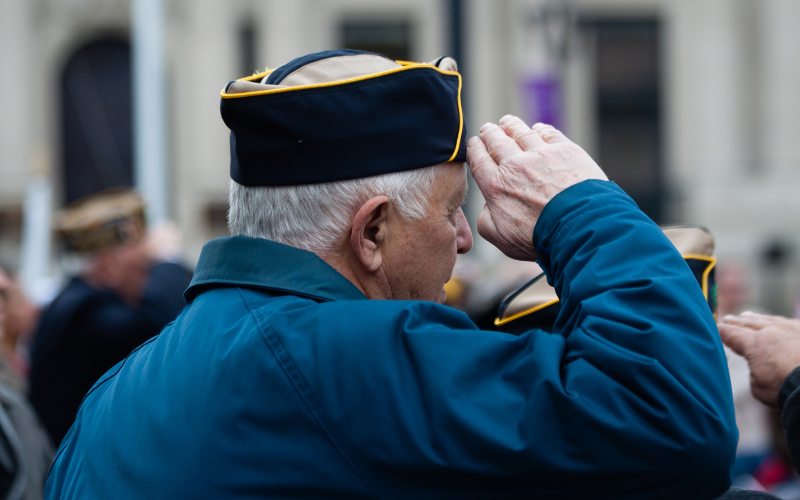In the landscape of senior care, there’s a population whose unique needs and sacrifices deserve special attention and care – our veterans. These individuals have dedicated their lives in service to their country, often facing extraordinary challenges and experiences that can impact their health and well-being as they age. In addition to specialized senior care, military housing options are also available to ensure that veterans have secure, comfortable living arrangements tailored to their needs. Recognizing this, specialized senior care programs and military housing options have emerged, aiming to honor their service by providing comprehensive support and assistance in their golden years.
Understanding the Unique Needs of Veteran Seniors
Veteran seniors often face a distinct set of challenges compared to their civilian counterparts. Years of service, exposure to combat situations, and the toll of physical and mental health issues related to their time in the military can significantly impact their overall well-being as they age. Common issues include:
- Physical Health Challenges: Veterans may experience a range of physical health issues, including chronic pain, mobility issues, and disabilities resulting from injuries sustained during their service.
- Mental Health Concerns: Conditions such as post-traumatic stress disorder (PTSD), depression, and anxiety are prevalent among veterans, often stemming from traumatic experiences during their time in the military.
- Social Isolation: Transitioning to civilian life can be challenging for veterans, leading to feelings of isolation and loneliness, especially for those who may have lost comrades or who struggle to reconnect with their communities.
- Access to Specialized Care: Many veterans require specialized medical and mental health care tailored to their unique experiences and conditions, which may not always be readily available in traditional senior care settings.
Comprehensive Senior Care Solutions for Veterans
Fortunately, there are comprehensive senior care solutions designed specifically to address the needs of veteran seniors. These programs offer a range of services aimed at providing personalized care, support, and assistance to honor their service and ensure their well-being in their later years. Some key components of these solutions include:
- Medical Care Coordination: Specialized senior care programs for veterans often encompass a comprehensive approach to medical care coordination. This involves more than just scheduling appointments; it entails ensuring that veterans have access to a network of healthcare providers who understand their unique needs and experiences. Care coordinators work closely with veterans to navigate the healthcare system, advocate for their needs, and ensure that they receive timely and appropriate medical treatment. This may involve coordinating care between multiple specialists, managing complex medication regimens, and providing education and support to help veterans take an active role in managing their health.
- Socialization and Community Engagement: Combating social isolation is a key component of senior care for veterans, many of whom may struggle to reconnect with their communities after leaving the military. Comprehensive senior care solutions prioritize socialization and community engagement, offering opportunities for veterans to connect with their peers, participate in social activities, and engage with their communities. This may include organized outings and events, volunteer opportunities, and participation in veteran-specific organizations and support groups. By fostering social connections and providing a sense of belonging, these programs help veterans combat feelings of loneliness and isolation, improving their overall quality of life.
- Mental Health Support: Mental health issues are prevalent among veterans, with conditions such as PTSD, depression, and anxiety affecting many individuals. Comprehensive senior care solutions for veterans prioritize mental health support, offering a range of services tailored to address the unique challenges faced by this population. This may include individual and group therapy, specialized counseling for trauma-related issues, and access to psychiatric care. In addition, programs may offer alternative and complementary therapies such as art therapy, music therapy, and mindfulness practices to help veterans cope with stress, manage symptoms, and improve their overall well-being.
- Rehabilitation Services: Many veterans face physical disabilities or injuries as a result of their service, requiring ongoing rehabilitation to maintain function and mobility. Senior care programs for veterans often include comprehensive rehabilitation services aimed at maximizing independence and quality of life. This may involve physical therapy to improve strength, flexibility, and mobility; occupational therapy to develop skills for activities of daily living; and speech therapy for communication and swallowing disorders. Rehabilitation services are tailored to the individual needs and goals of each veteran, with a focus on empowering them to achieve their highest level of function and independence.
- Assistance with Activities of Daily Living: For veterans who require assistance with activities of daily living, such as bathing, dressing, and meal preparation, senior care programs often provide in-home care services. These services are tailored to the individual needs and preferences of each veteran, with a focus on promoting independence, dignity, and quality of life. Caregivers may assist with tasks such as personal hygiene, medication management, household chores, and transportation to appointments. By providing compassionate and personalized care in the comfort of their own homes, these programs enable veterans to age in place safely and comfortably, maintaining their autonomy and independence for as long as possible.
Conclusion
In conclusion, honoring our heroes means ensuring that veteran seniors receive the care, support, and assistance they need to live their lives to the fullest in their later years. Comprehensive senior care solutions tailored for veterans play a crucial role in meeting the unique needs of this population, providing medical care, mental health support, rehabilitation services, socialization opportunities, and assistance with activities of daily living. By recognizing the sacrifices they have made in service to their country and providing them with the resources they need to age with dignity and grace, we can truly honor the legacy of our veteran heroes.


